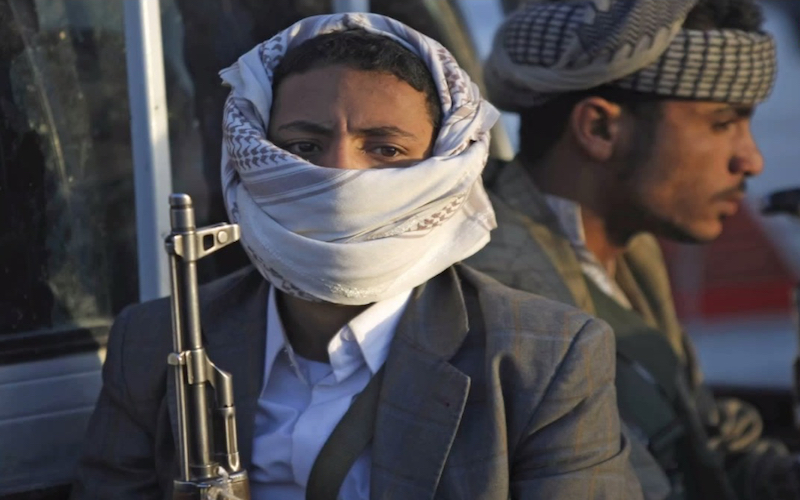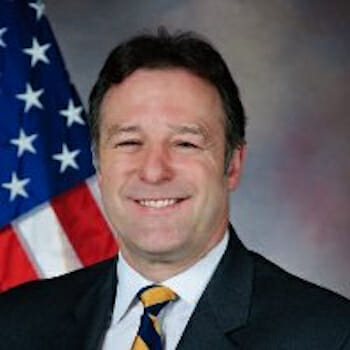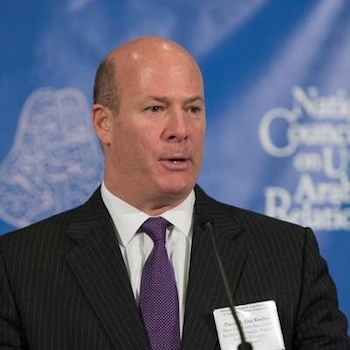
Houthi Tribesmen Continue to Pose a Risk to Yemen
Houthi tribesmen light up the evening sky with endless gunfire in downtown Sana’a. Everyone is really frightened. The Houthis have moved into the capital, taken over government buildings and a TV station as a show of force to press action from President Hadi. They want a better share of the proposed 6 state solution to new Yemen because they want to group their people together, gain oil resources and also secure access to the sea. They are also pressing for government fuel subsidies to be added back. They will take life to get what they want. The BBC reports that scores have died and hundreds have fled their homes in Sana’a. Today Prime Minister Mohammed Basindwa resigned. The international community has been fully mobilized in a political sense and UN Special Envoy Jamal Benomar is right in the thick of negotiations. How will this end?
Since the death of the charismatic American-born al Qaeda in the Arabian Peninsula (AQAP) leader Anwar al-Awlaki, Yemen’s war against terror has mostly vanished from the front pages of the western press. The threat, unfortunately, has not. Many of the recent al-Qaeda actions directed against the U.S. homeland including underwear bombers and the printer cartridge bombing are no longer current news. Much of the talk of Yemen is optimistic following the National Dialogue Conference and the rosy future of a planned referendum about a new constitution followed by presidential and parliamentary elections. That was, of course, until the Houthis mobilized.
The National Dialogue Conference has passed but – as most know – the implementation process now brings into sharp focus the old, open and festering wounds of Yemen’s internal battles which remain largely unresolved since the forced unification in 1990 and the subsequent 1994 civil war under former President Saleh.
Southern secessionists still seek to re-establish an independent state in their region, most recently the Shi’a Houthis in the North have bolstered their de-facto sovereignty with Iranian weapons, the Islah (Muslim Brotherhood) party is seeking power and it has been fighting the Houthis in Sana’a, Ali Abdullah Saleh’s family appears to be influencing through meddling and – of course – AQAP still holds territory. Amidst all these power challenges among the groups, Yemen still remains desperately poor with small and dwindling supplies of both oil and water, plus a weak economy leading to high unemployment, poverty and child malnutrition.
Yemen stands alone with Tunisia as one of only two so-called Arab Spring countries that have deposed a dictator and worked to reform government along democratic lines. In Yemen, that progress, that shining example, is at risk because of the Houthis and their coup d’état attempts. Yemen’s legitimate yet struggling government has been besieged by the armed group and Yemen’s security forces have reacted with restraint in some instances and ham-handedly over-reacted in others. The Houthis have protested peacefully in some instances, but protests have recently escalated. As per normal in Yemen the international community is seeing the reality of everything play out in plain sight, warts and all!
Only the international community can stop Yemen’s collapse now. Jamal Benomar is trying to secure an enduring deal to ward off disaster; the National Agreement signed today should help. But all must keep calm, and continue to support Yemen. The U.S. should now step up further with training assistance on the ground and also outline real plans to professionalize Yemeni security forces, to include police, but also to support security sector reform including education. Like-minded Arab and European states should be encouraged to accelerate their efforts to support Yemen as well.
The Houthis need to be told and to understand that their actions crossed a red line of democracy and into anarchy. They must realize that their occupation of Sana’a puts a democratically elected regime in peril; if the deal does not hold the Houthis will be viewed as an enemy of regional and Western security interests long term, as well as an enemy to Yemeni internal security interests. The multinational maritime patrols in the Gulf should widen their watch to include shipments to the Houthis and the group should be forced to abandon violence and use politics where the solution lies. As the world now focuses on the Islamic State, we should not forget that a stable Yemen is essential to secure the soft underbelly of the Arabian Peninsula for the fight against radical extremism and disorder. Yemen is the bastion of hope, and a hinge to the region and must be appropriately supported. Western and regional capitals should be ready to act and at the very least send supportive messages to President Hadi, condemn the Houthis, and promise to keep Yemen’s survival high on their agendas.

